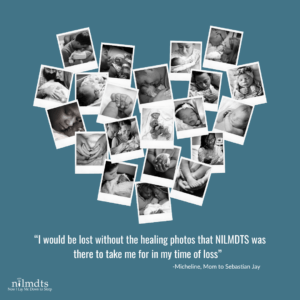What I Wish I Knew Before I Delivered My Stillborn Son
Until the moment when I found out that my baby boy’s heart had stopped beating at 31 weeks gestation, I was blissfully clueless about what happens when a baby is stillborn. My personal experience with pregnancy loss had been two first trimester miscarriages. My experience with childbirth was the happy delivery of our healthy full-term son five years earlier.
That Friday morning in May of 2014, as I watched my doctor search fruitlessly for a heartbeat on the monitor of the sonogram machine, I was the proverbial deer in the headlights – knowing something bad was coming yet woefully unprepared for what to do or what was to come.When the doctor confirmed my worst suspicions and slowly helped me up from the exam table, I asked “What happens now? Do I need to have a D&C?” He shook his head no. “You’ll need to deliver.”
With those words, I was transported into a “through the looking glass” world where life as it was supposed to be was turned on its head.
Instead of arriving at the hospital with joyful anticipation, we arrived with the solemn task of delivering a child who would never come home with us.
While nothing could have prepared me for what I would feel and experience, there are things I wish I had known as I sat in that labor and delivery waiting room, clutching my pillows, trying to avoid eye contact with the happy and nervous parents-to-be who still resided in the “normal” world where babies are born alive and healthy.
If I could go back in time to that Friday morning in my doctor’s office and talk to my pre-delivery self, here’s what I would tell her:
Think about how you want to spend the time you have with your baby and the memories that you want to make.
Some of my closest moments with my living son were during his infancy when I held him to my chest, his bare skin against mine. I wish I had taken a moment to do that with my stillborn son.
I wish I had taken off his hat and looked at his hair; unwrapped his blanket to touch his toes or wrap his tiny fingers around mine. While I am thankful for each moment that I cradled him in my arms, I wish I had taken the opportunity to make more memories to carry with me through the months and years without him.
Find out what resources are available to you through the hospital where you deliver, and whether or not these resources will be available if you deliver on a weekend.
The hospital where I gave birth had a social worker specializing in perinatal loss on staff. Unfortunately, she did not work weekends and I was admitted on Friday evening. I wish that someone had suggested we speak with her Friday morning when we first learned of our loss. Instead, we were assigned to the on-call weekend social worker who was more clueless about stillbirth than we were. She looked so uncomfortable I almost felt bad for her.
We also missed out on the opportunity to have staff in the hospital’s child life department meet with our living son about his loss. By the time I learned of that resource, I was back home recovering and was informed that he was no longer eligible for that service since I was no longer a patient.
Come to the hospital prepared to capture memories with your baby and to nurture yourself and your partner through a difficult and possibly lengthy delivery.
The only photos we have of our stillborn son were taken on our cell phone cameras. I wish I had thought to bring a better camera, or known to reach out to the non-profit Now I Lay Me Down to Sleep, which arranges for volunteer professional photographers to photograph stillborn babies and their parents.
I wish we had brought snacks for my husband for his 25 hour vigil as we waited for the delivery or thought to bring music to block out the sounds coming from other rooms on the labor and delivery floor.
Looking back at our “deer in the headlights” selves, the common theme is that I wish someone had told us what we might consider doing to make the impossibly difficult a little bit easier. While I know there is no rewinding time, I hope that other grieving parents receive the information and support to help them through this painful and challenging life experience.
~ Alana, Matthew’s Mommy







